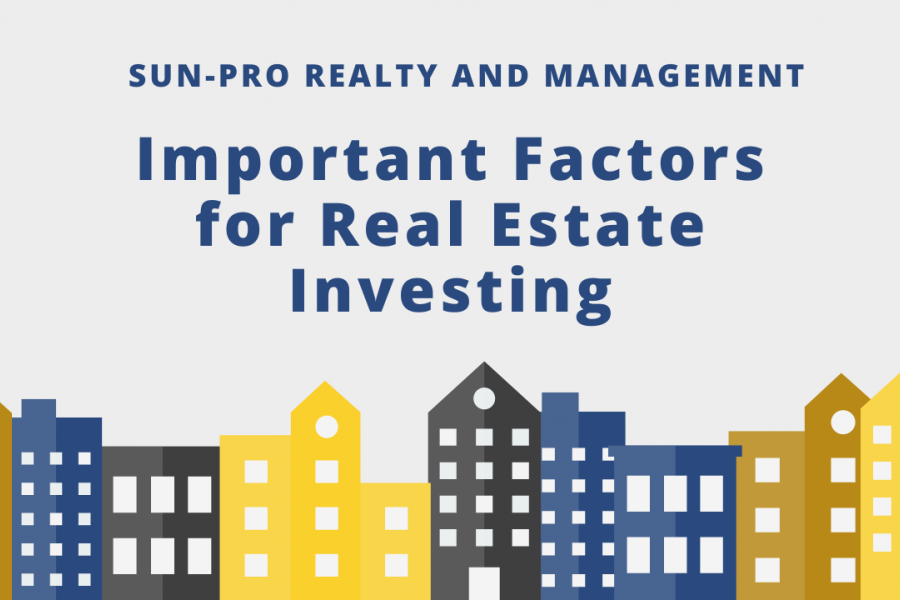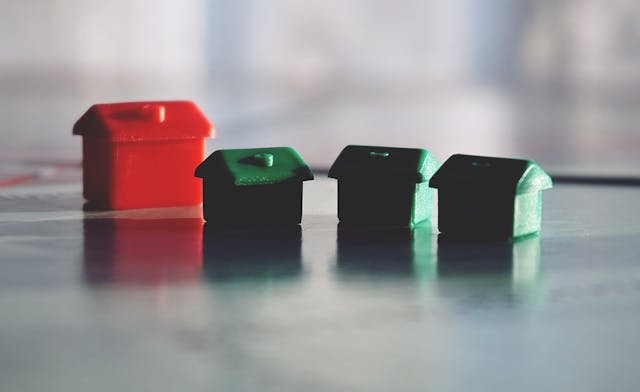
Real estate investing can, without a doubt, be a lucrative venture. While location is an incredibly important factor to consider for real estate investing, there are other factors to consider as well.
In today’s article, we’ll look at some of the most important factors any investor should be looking at before getting their feet wet.
Location
This cannot be emphasized enough! Location remains a top factor for real estate investing. You want to buy a property in the right location to maximize your return on investment as quickly as possible.
The right location is one that is in close proximity to scenic views, green spaces, and amenities. Other things that make a location desirable include closeness to transport hubs, markets, warehouses, and freeways.
To get more information about a particular vicinity, especially when it comes to long-term area planning, you can get in touch with the city’s zoning and urban planning departments.
Property Valuation
A proper property valuation will become important during the financing stage. Other things that rely on property valuation include taxation and insurance. Generally speaking, you can choose from either of three evaluation methods: sales comparison approach, income approach, and cost approach.

The sales comparison approach looks for recent comparables in the market. That is, properties that share similar characteristics. The cost approach looks at the cost of land and construction, less the depreciation. The income approach is based on cash inflows, and is suitable for prospective landlords.
Purpose of Investment
This is key from the get-go. Have clarity on why you are investing in the first place. The following are common reasons for real estate investing.
- Buy and use the property yourself: Are you looking to save on rent? This can be a good investment strategy for self-utilization all while racking up property appreciation.
- Buy and find prospective tenants: Are you looking for a regular income stream and long-term property appreciation? If so, this can be a good investment to consider. Just make sure you familiarize yourself with the local landlord-tenant laws, prevailing rent amounts, and have the temperament to be a landlord.
- Buy and sell for profit over a short period: This is also known as flipping a house. With this strategy, the sole intention of buying a property is to renovate it and then sell it for a profit. You must, however, have a keen eye to pull this one off successfully.

- Buy and sell for profit over a long period: Unlike flipping homes over the short term, this is focused on the long term. By being a long-term goal, this investment strategy is particularly popular with prospective retirees.
Expected Profitability
You’ve probably heard it before – cash flow is king! Indeed, it is the metric used to calculate whether or not a property investment will be profitable. The goal here is to invest in a property that generates positive cash flow every month or will at least be profitable when you eventually sell it.
If looking to become a landlord, then the rental income should be able to cover all expenses and generate a profit. The typical cash flow for a rental property should fall between 7-to-8 percent. However, this percentage can vary depending on the location of your property, property value, and other factors.
Newly Constructed or Existing Property
New construction properties have their advantages over existing properties. They include: attractive pricing, customization options, and contemporary amenities. As for the disadvantages, they include risks of delays, and increased construction costs.
Existing properties, on their part, offer faster access, convenience, and established improvements. They, however, fall short when it comes to customization options.
When deciding whether to go for a new construction or an existing construction, the following are a few things you should consider.

- Go for a reputable construction company even if it’s relatively expensive.
- Get expert reviews on property deeds and appraisal reports for existing construction.
- Consider the property’s monthly running costs. This is especially true if you are looking to become a landlord. Typical expenses include maintenance costs, and property taxes.
Credit Score
It’s highly unlikely that you’ll buy the investment property in cash. After all, buying an investment property isn’t a cheap affair; it’s often a huge financial undertaking.
For a majority of investors, taking a mortgage is usually the common route to property financing. And when looking at financing options, your credit score will play a significant role in the lending terms.
The higher the credit score, the better the mortgage terms, and vice versa. Scores exceeding 800 are considered excellent and will often get you the best terms. If you have a lower score, you can do the following things to improve it.
- Clear your existing debt.
- Limit your credit utilization.
- Report any discrepancies in your credit report.
- Pay bills on time.
- Avoid closing unused credit cards.
Real Estate Market Knowledge
Before investing in a particular market, get a hang of it first. Know the past, prevailing, and projected market trends. In addition to staying up to date with the market trends, also make sure to pay attention to mortgage rates as well. This can help you lower your financial costs.

Some of the trends you’ll want to stay up to date with include the following.
- New construction
- Mortgage rates
- Flipping activity
- Foreclosures
- Home prices
- Rent prices and future forecasts
- Property inventory
Conclusion
Investing in real estate requires serious consideration of the aforementioned factors. By doing your due diligence, you can minimize the potential risks while maximizing the return on investment.
If you need expert guidance, then look no further than Sun-Pro Realty Management. We can help you make the right property investment purchase. Get in touch to learn more!